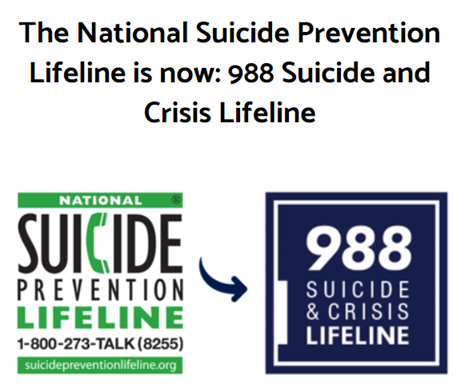Insurance companies are the real healthcare death panels. In 2020, after years of serving as a mental health professional, I made the heartbreaking decision to retire from counseling and therapy. I didn’t leave because I no longer cared for my patients or because the work had grown too difficult. I left because insurance companies were actively prioritizing profit over people—refusing to pay for life-saving medications that my patients desperately needed. The ethical weight of this reality became unbearable, as I found myself no longer preparing my patients for healing but instead preparing them for death.
This is the story of how a system that was meant to protect lives betrayed my patients, my profession, and my hope for a better future. It is also a story about why insurance death panels are driving health care professionals out of the profession.
Health Care Should Be About Saving Lives not about Death Panels
As a mental health professional, I spent years working with individuals who struggled with severe depression, bipolar disorder, schizophrenia, and other life-altering mental illnesses. Many of these conditions are not just debilitating—they can be life-threatening. Effective treatment often requires a multi-pronged approach: therapy, lifestyle adjustments, and, in many cases, life-saving medications. Since I worked in a medical clinic, I also saw patients with chronic illnesses like diabetes and heart disease that required medication to keep them alive. At first, I saw them because they had anxiety over how they were going to afford their medications. As the greed of the healthcare death panels grew, eventually I started seeing these people for depression because they could no longer afford their medications and they knew they were going to die.
These medications are not optional. They’re not a luxury. For many of my patients, medications such as antidepressants, mood stabilizers, and antipsychotics were the only things keeping them alive—keeping them from succumbing to the darkness of their illnesses. For my patients with diabetes or other chronic ailments, medications like insulin kept them alive.
But the insurance death panels didn’t see it that way.
Insurance Companies: The REAL Death Panels
Over the years, I watched in frustration as insurance companies consistently denied coverage for essential medications. The process was infuriatingly familiar:
- Doctors and therapists recommend a specific treatment plan tailored to the patient’s needs.
- The insurance company’s death panel rejects it.
- Appeals are made. Hours are spent on paperwork and phone calls. Precious time that could have been better used for patient care is wasted.
- Patients are left in limbo, unable to afford the medications they need to survive, denied yet again by the healthcare death panels.
This wasn’t just bureaucracy—it was a death sentence. Many patients couldn’t wait weeks or months for approvals that might never come. They were living day-to-day, fighting to keep their chronic illness from consuming them. And yet, to the insurance death panels, their lives were reduced to dollar signs and cost-benefit analyses.
My Job Became Preparing Patients for Death

In my last few years in the profession, I began to notice a grim shift in my role as a therapist. Instead of helping patients work toward a brighter future, I found myself preparing them for an unavoidable end.
- Patients who couldn’t get their medications began losing hope.
- Therapy alone wasn’t enough to keep their suicidal thoughts at bay.
- They would ask me questions like, “What happens if I don’t wake up tomorrow?” or “What do I tell my family when I’m gone?”
I tried to hold space for their pain, but it felt like shouting into the void. I could no longer offer solutions because the system had taken them away. I had to prepare my patients for the unimaginable—for the reality that their lives weren’t deemed worth saving because saving money was more important.
This was not why I became a mental health professional.
A Broken System That Costs Lives
Insurance companies are supposed to make healthcare accessible. Instead, they’ve become gatekeepers that stand between patients and their right to live healthy, fulfilling lives. While insurance executives enjoy multi-million-dollar salaries, real people are left to suffer, deteriorate, and die.
Mental illness is already stigmatized enough. Patients often have to summon immense courage just to ask for help. To then be turned away because insurance won’t cover the cost of their care—it’s cruel and inhumane.
The consequences of these decisions are real:
- Patients left untreated face higher rates of hospitalization, incarceration, and suicide.
- Families are shattered by preventable losses.
- Mental health professionals are left burnt out, demoralized, and hopeless.
This isn’t just a failure of healthcare—it’s a moral failing of our society. If we judge our society by how we treat our most vulnerable members, what does this say about America?
Why I Had to Walk Away
Retiring in 2020 was one of the hardest decisions I’ve ever made. I loved my work. I loved my patients. However, I could no longer reconcile my role within a system that failed to value human life. Every denied prescription, every preventable death, chipped away at my faith in a profession I once believed could change lives for the better.
My decision to retire was not about giving up—it was about refusing to be complicit in a system that prioritizes profit over people. I couldn’t continue to watch patients die when I knew that their lives could have been saved.
We Deserve Better
Mental health care is healthcare. Full stop. And healthcare is a human right. No one should have to beg for the medications they need to survive. No one should lose their life because an insurance company decided they weren’t worth the cost.
If we want to create real change, we need to hold insurance companies accountable. We need to advocate for reforms that put patients first—not profits. And we need to treat mental health with the same urgency and compassion that we give to physical health.
Final Thoughts on Insurance Death Panels
To those still fighting within the system—patients, families, and fellow mental health professionals—know that your work matters. Your lives matter. You are not alone in this fight.
I may have retired, but I will never stop speaking out against the injustices I witnessed. I hope that by sharing my story, we can shine a light on the system’s brokenness and inspire meaningful change because saving lives must always come before saving money.
If you or someone you know is struggling with mental health, don’t hesitate to seek help. Resources exist, and your life is worth fighting for.

Share Your Thoughts about Insurance Death Panels!
What do you think? Have you ever been denied lifesaving medications or care by an insurance death panel? Share your thoughts in the comments below!

